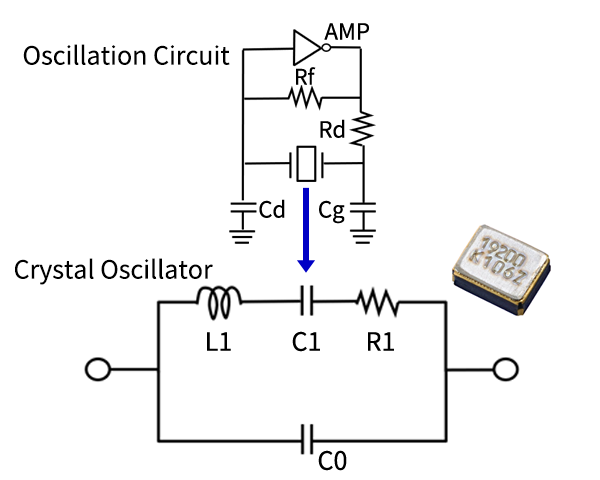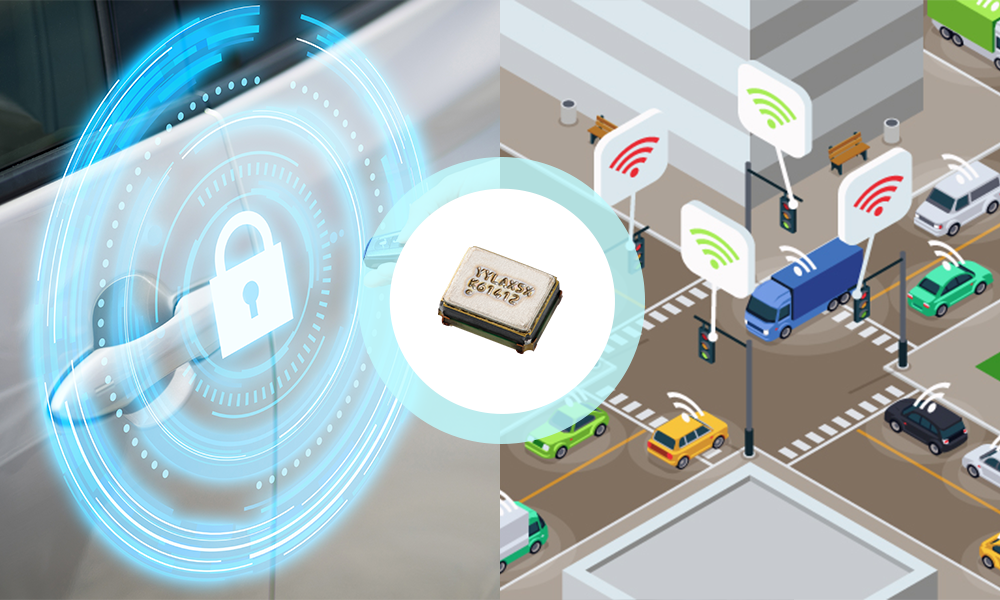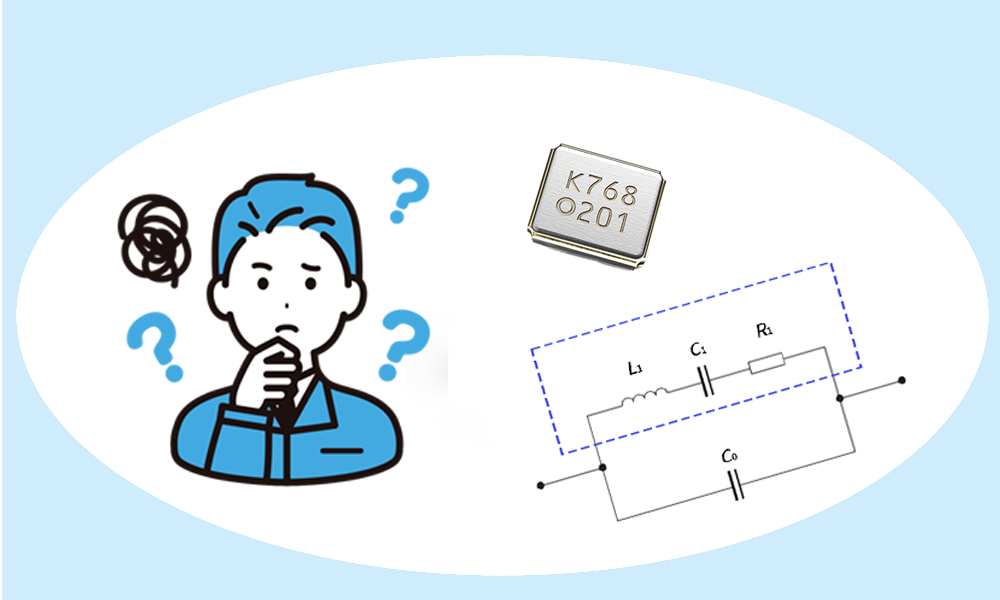- Crystal Devices
What is a Crystal Device? Discover its Advantage: Exceptional Frequency Stability


It is no exaggeration to say that crystal devices are used in every electronic device in the world. The reason it is so widely used lies in its exceptional frequency stability.
This section briefly introduces the crystal oscillator's excellent frequency stability and background and explains the required matching for oscillation.
The Nature of Crystal Quartz
Crystal Quartz as a Physical Phenomenon
Pressing a plane perpendicular to the X axis of the crystal generates a + charge on the surface. Also, when the crystal surface is pulled, - charges are generated. [Piezoelectric effect]
Applying an electric field to a surface perpendicular to the crystal's X axis causes the crystal to shrink or stretch. [Reverse Piezoelectric Effect]
Alternating + or - electric fields are applied to the crystal surface, causing the crystal to expand and contract repeatedly.
Crystal oscillators take advantage of this mechanical change.
Keywords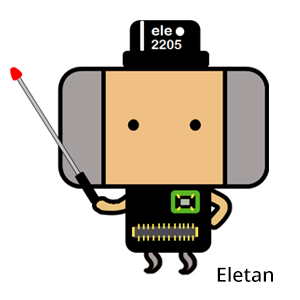 The Official Mascot of Kyocera’s Electronic Components Division: Eletan
The Official Mascot of Kyocera’s Electronic Components Division: Eletan
Click here to learn more about Eletan
What is a crystal quartz?
A hexagonal prismatic crystallization of a mineral called quartz, which is colorless and transparent. Crystals possess a unique property known as the piezoelectric effect, which means that the application of pressure on them generates electricity.
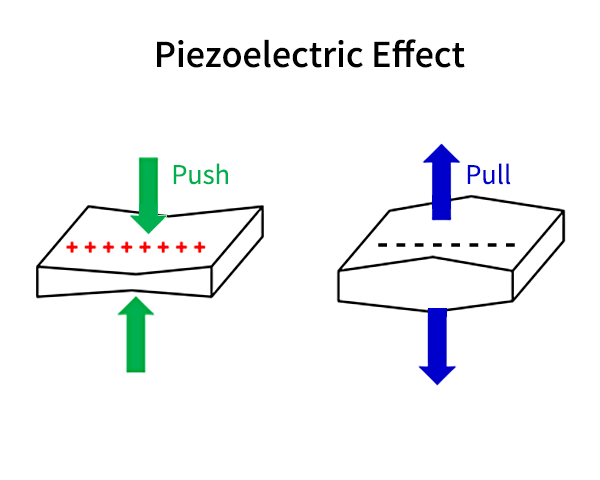
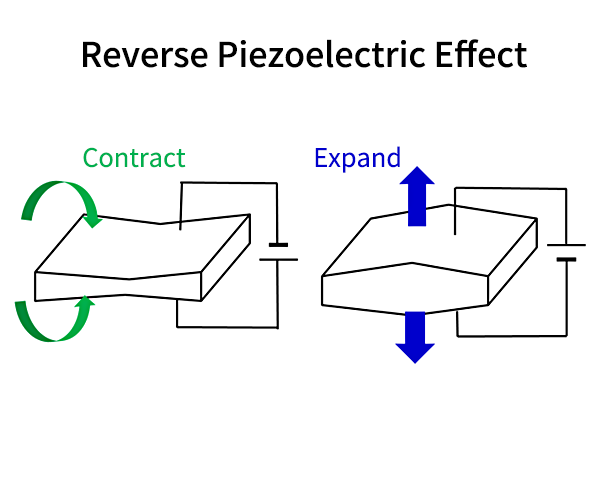
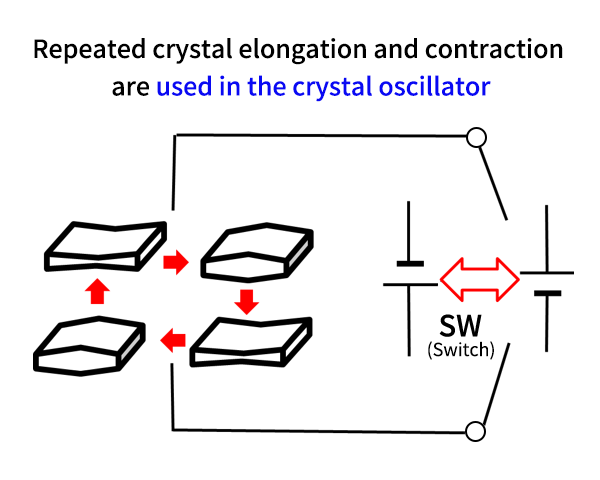
Vibration and Oscillation
The mechanical vibration of the crystal gradually decreases due to energy consumption.
Therefore, to maintain the oscillation of the crystal at a constant frequency and amplitude, external energy needs to be injected. That is called oscillation.
By returning part of the output of the amplifier circuit to the input (feedback), regular voltage oscillations can be sustained. This is called an oscillation circuit. A crystal oscillator circuit is formed by inserting a crystal oscillator into the circuit.
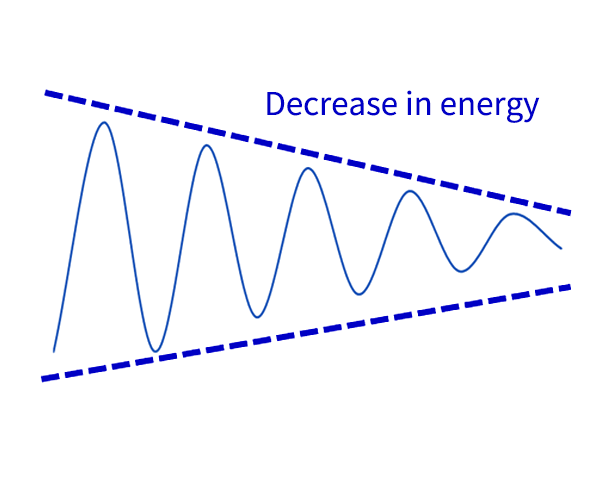
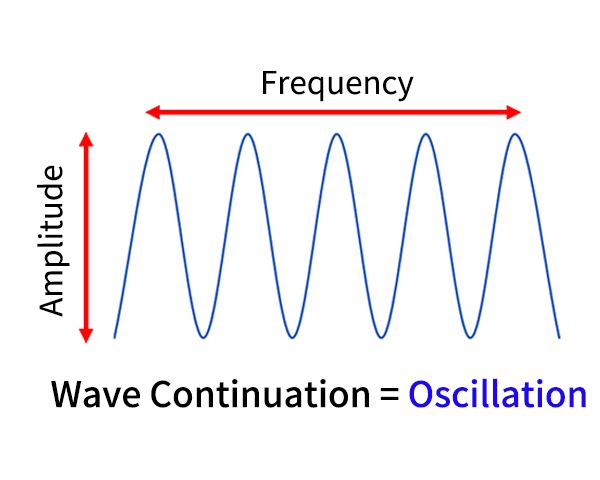
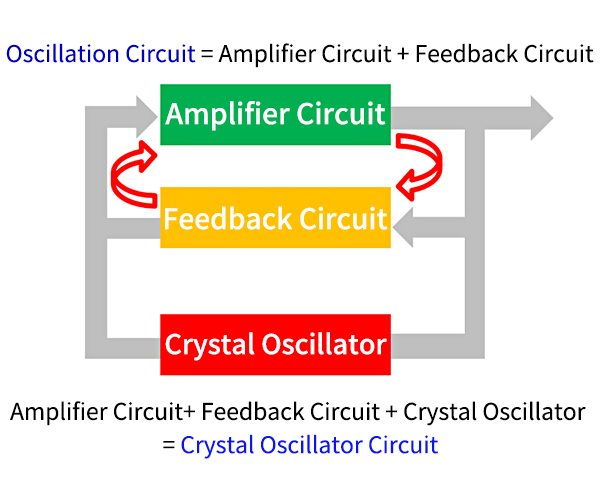
Benefits of a Crystal Device
The Crystal Device offers:
- Less energy loss during vibration.
- Less frequency variation due to temperature.
- Low long-term frequency fluctuations.
Because of these features, it is used for applications requiring accuracy.
Example: Mobile communication equipment (Smartphones, wearable devices, laptops, etc.), wireless LAN, base station, on-board equipment, industrial equipment, etc.
A crystal oscillator consists of a resistor (R1), a capacitor (C0, C1), and a coil (L1) as shown on the right. This depends on the frequency, the size of the crystal plate, etc.
In order to oscillate, it is necessary to match the AMP (amplifier), Rf (feedback resistance), Rd (power limiting resistance), Cd, and Cg (external capacitance) of the oscillation circuit shown in the figure with these constants of the crystal. Failure to do so may cause frequency shift or oscillation to stop, causing serious damage to the product.
Matching is a very important part of operations with crystals.
Kyocera is here to assist you with this task.
